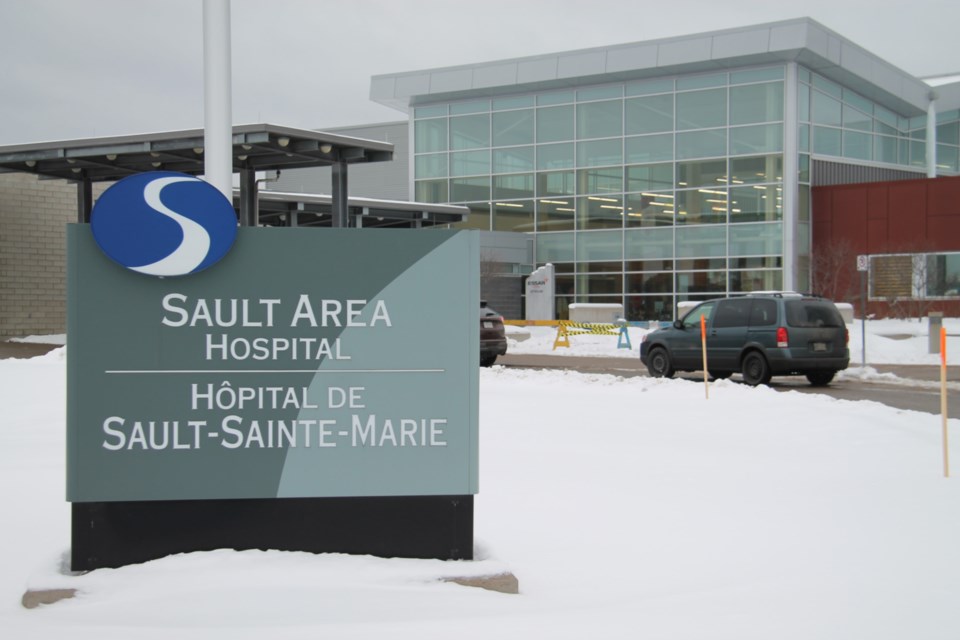The following letter to the community was penned by Ila Watson, President & Chief Executive Officer and Dr. Silvana Spadafora, Chief of Staff for Sault Area Hospital, in regards to COVID-19 spread and its impact on the hospital/in the community:
Hospitals are beginning 2022 in a very different position than we anticipated just a short time ago. The highly transmissible Omicron variant has spread rapidly, leading to high case counts and unprecedented pressure on our health system.
Sault Area Hospital (SAH) has responded quickly to the evolving situation, evaluating and shifting strategies to meet anticipated challenges ahead of this wave of the pandemic. We are working closely with our community and regional partners to continue to meet the demand with our community.
Omicron presents two crucial issues to healthcare: the significant number of people anticipated to need emergency and inpatient care and the impact on the already existing shortage of health care professionals to provide patient care. This is creating a worrisome situation.
Our hospital, like many across Ontario, is experiencing significant pressures on hospital occupancy and staffing:
- The community transmission of Omicron has impacted our teams: over 60 hospital workers positive with COVID-19 symptoms (Jan. 10). In addition, we have a number of staff in isolation due to potential household exposures.
- There is an increased number of patients being admitted with complex medical issues.
- Currently, nine (9) inpatients are hospitalized for COVID-19, with one (1) in the Intensive Care Unit (ICU). (Jan. 10)
In response to these challenges, our hospital has enacted measures to ensure that we can continue to provide safe, quality care to our community:
- A ramp down of non-emergent and non-urgent surgeries and procedures, which began, Jan. 5, as directed by Ontario Health. This will allow us to redeploy the health human resources in units needing additional staffing support. We will continue to provide urgent and emergent surgeries, including cancer surgeries.
- Staffing contingency plans have been implemented to support care delivery during any period of shortage.
- Following the new provincial testing guidelines for healthcare workers, with the timely return to work of asymptomatic staff who have had a COVID-19 exposure. These staff complete daily negative rapid antigen tests (RAT), ensuring work self-isolation and self-isolation at home.
- Continued prioritization of PCR testing for staff and physicians to enable their return to work as quickly and safely as possible, with additional enhancements to the testing process underway.
In addition to these measures, to support our Emergency Department volumes and acuity, we are asking for our community’s assistance to ensure those who need our emergency care can receive it immediately.
If you have mild COVID-19 symptoms, you do not need to come to the ED. Coming to the ED risks exposing vulnerable people to the virus. Please call your primary care provider or TeleHealth Ontario for advice on managing mild COVID-19 symptoms at home.
If you are eligible under new provincial testing guidelines, you may book your COVID-19 test online. Our ED cannot administer COVID-19 tests upon request.
If you visit the ED, you will be seen based on the severity of your illness. Patients are seen based on an assessment of individual illness, including many community members who arrive by ambulance. As a result of high volumes, this will likely mean longer than normal waiting times for less severe illness.
Our Emergency Department is safe and our nurses and doctors are ready to care for patients who need our help. If you need emergency care, do not hesitate to call 911 or visit your nearest Emergency Department.
These last two years have been incredibly difficult for everyone. We are all anxious to return to our prepandemic lives. However, now more than ever, please continue to follow the guidance of medical experts and public health officials. Get vaccinated/boosted as soon as possible, as doing so keeps you and your loved ones safe. Continue to protect yourselves and others by masking, washing your hands, maintaining physical distancing, and limiting the number of people with whom you gather.
As the pandemic evolves, so will the situation within our hospital. Our teams will continue to provide safe, quality care to those who need it most. We thank you for your patience, understanding and continued support.
